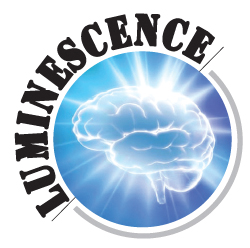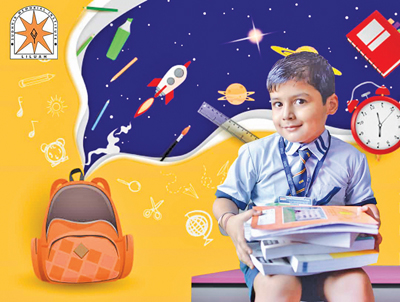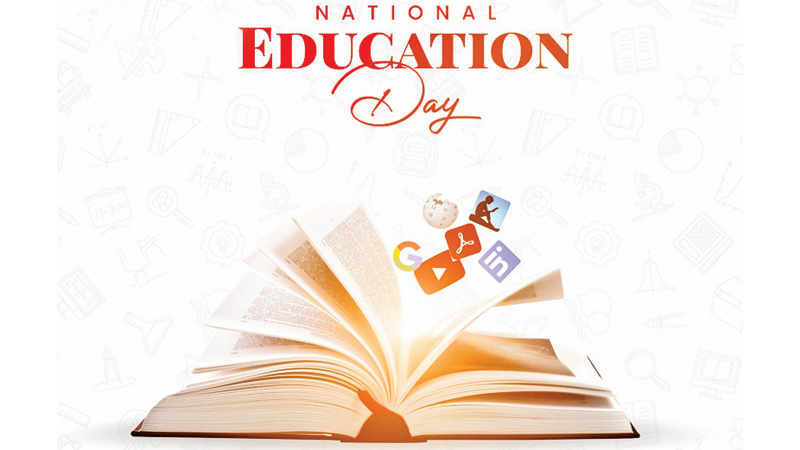“Teach the ignorant as much as you can. Society is to blame for not giving free education: it is responsible for the darkness it creates. The soul in darkness sins, but the real sinner is he who caused the darkness”. –Victor Hugo, Les Misérables
 As we commemorate National Education Day round the corner, it is important to reflect on the profound impact education has on individuals and societies. Education is more than a tool for personal growth; it is the foundation upon which societies build pathways to prosperity and break cycles of poverty. Its influence extends beyond textbooks and classrooms, shaping the skills and values that uplift communities and drive progress.
As we commemorate National Education Day round the corner, it is important to reflect on the profound impact education has on individuals and societies. Education is more than a tool for personal growth; it is the foundation upon which societies build pathways to prosperity and break cycles of poverty. Its influence extends beyond textbooks and classrooms, shaping the skills and values that uplift communities and drive progress.
Education is a continuous journey, evolving as individuals grow, experience life, and face new challenges. From childhood to adulthood, every stage of life presents learning opportunities that contribute to both personal and societal growth. By embracing lifelong learning, people gain adaptability, resilience, and a deeper understanding of the world.

The link between education and poverty eradication is undeniable. Education empowers individuals with the skills to secure employment, make informed decisions, and improve their quality of life. For those living in poverty, education is often the only path to break free from economic limitations and build a future.
Educated individuals gain access to better job opportunities and wages, enabling them to support themselves and their families. Education also fosters personal responsibility and financial literacy, which can prevent cycles of debt. By providing skills for employment and encouraging entrepreneurship, education creates self-reliant citizens who contribute to economic growth.
In developing nations, investing in education can transform societies. Educated populations lead to lower poverty rates, reduced dependence on welfare, and higher productivity. Education empowers people not only to advance personally but also to uplift communities by creating opportunities, raising health awareness, and fostering social development.
Beyond economic empowerment, education builds resilient, adaptable societies. Individuals learn empathy, social responsibility, and civic duty—qualities that create strong communities where people support one another for the collective good. Education fosters shared responsibility, enabling people to engage meaningfully in democracy and governance.
Educated societies are better equipped to face global challenges like climate change, health crises, and economic shifts. An educated population understands sustainable practices, public health, and economic diversification, making societies more resilient in adversity. National Education Day reminds us of education’s role in creating proactive citizens who can adapt to and shape the future.
Education is also a powerful force for equality. Quality education opens doors for marginalized groups, including women and minorities. When everyone has the chance to learn, society benefits from diverse perspectives and ideas. Education gives individuals the voice and skills needed to challenge discrimination and pursue equal opportunities.
 For women, education is particularly transformative. Studies show that educated women contribute more to the economy, hold leadership roles, and make decisions that positively impact the health and education of future generations. By prioritizing education for all, societies lay the foundation for inclusive development, where everyone plays a role in progress.
For women, education is particularly transformative. Studies show that educated women contribute more to the economy, hold leadership roles, and make decisions that positively impact the health and education of future generations. By prioritizing education for all, societies lay the foundation for inclusive development, where everyone plays a role in progress.
National Education Day calls for recognizing education as a national priority and expanding access, quality, and lifelong learning for all. While celebrating progress, we must also acknowledge the work ahead. Many still face barriers to learning, whether due to economic hardship, geography, or societal discrimination.
To honour National Education Day, we must strive to address these challenges by investing in inclusive, equitable, and high-quality education systems. Governments, communities, and individuals all play a role in creating educational environments where every child and adult can learn, grow, and succeed. Policies supporting lifelong learning and educational programs that respond to a changing world are essential.
As we commemorate National Education Day, let us remember that education is not just a means to an end but a legacy of hope, empowerment, and transformation. It shapes who we are, how we contribute to society, and what future we create. Education opens minds, expands horizons, and fuels potential. By investing in education, we invest in a future where poverty is not a destiny but a chapter we can close, one generation at a time.









